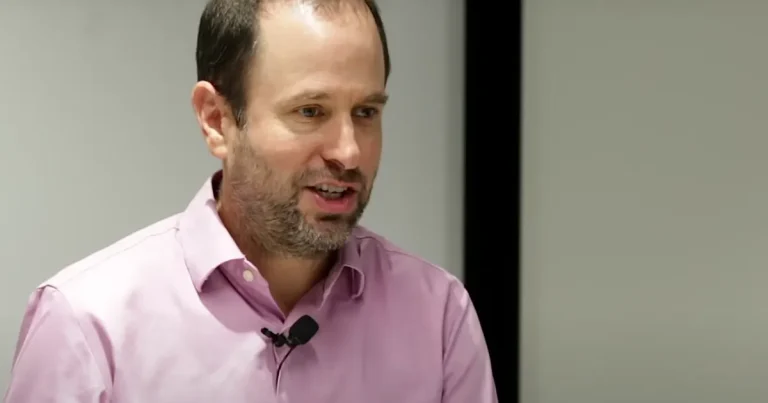16-5-2024 (CALIFORNIA) In the realm of cutting-edge technology, a new frontier has emerged – one that promises to preserve the essence of our cherished loved ones long after they have departed. This innovative approach to grief has sparked both intrigue and apprehension, as artificial intelligence (AI) is harnessed to create interactive avatars and chatbots that mimic the voices, mannerisms, and even the likeness of those we have lost.
James Vlahos, a resident of Oakland, California, found himself grappling with the devastating news of his father’s terminal cancer diagnosis in 2016. Determined to make the most of their remaining time together, James embarked on an extraordinary journey – an oral history project where he meticulously recorded his father’s life story, capturing the nuances of his voice and personality.
As James delved into the world of AI, a profound idea took root. “I thought, gosh, what if I could make something interactive out of this?” he mused, fueled by a desire to preserve his father’s memory and the richness of his character in a more tangible form.
Tragically, James’ father, John, passed away in 2017, but not before his son had transformed the recorded narratives into an AI-powered chatbot – a digital embodiment of his father’s voice and life experiences. This groundbreaking endeavor ultimately blossomed into HereafterAI, a company dedicated to enabling others to create similar interactive memoirs for their departed loved ones.
While HereafterAI allows users to upload photographs of their loved ones, another pioneering firm, DeepBrain AI, takes the concept of preservation to an unprecedented level. Based in South Korea, the company creates video-based avatars by capturing hours of footage and audio, meticulously replicating the individual’s face, voice, and mannerisms.
“We are cloning the person’s likeness to 96.5% of the similarity of the original person,” explains Michael Jung, DeepBrain’s chief financial officer. “So mostly the family don’t feel uncomfortable talking with the deceased family member, even though it is an AI avatar.”
DeepBrain AI envisions this technology as an integral part of fostering a “well dying” culture, where individuals can prepare for their eventual departure by leaving behind a “living legacy” – a rich tapestry of family histories, stories, and cherished memories.
However, this level of technological preservation comes at a steep price. Users cannot create the avatar themselves; instead, they must invest up to $50,000 (£39,000) for the filming process and the creation of their AI avatar.
While the potential of AI to preserve the essence of our loved ones is undeniably intriguing, psychologist Laverne Antrobus urges caution, emphasizing the delicate nature of the grieving process. “Loss is something that catches us out,” she says. “You can think you’re pretty much close to being OK, then something can take you right back.”
Antrobus warns that the idea of hearing a lost loved one’s voice or words through an AI construct could be profoundly disorienting. “You’d have to feel quite solid before using something like this. Take things very, very slowly,” she advises, underscoring the importance of proceeding with care and emotional preparedness.
Beyond preserving memories, grief tech has also found a practical application in alleviating the administrative burdens that often accompany the loss of a loved one. Eleanor Wood, a 41-year-old resident of South Devon, experienced firsthand the arduous task of contacting numerous companies and institutions following the passing of her husband, Stephen, in March of the previous year.
“Some of the firms were great and straightforward. Some were outright incompetent and callous. They created more stress and emotional distress at a time when I was already at my lowest possible emotional ebb,” Wood recalls, highlighting the emotional toll of navigating bureaucratic processes during times of profound grief.
Enter Settld, a UK-based online platform that aims to ease this administrative burden for the bereaved. Launched in 2020 by co-founder Vicky Wilson following the loss of her grandmother, Settld automates the process of notifying private sector organizations, handling the paperwork, and ensuring a smoother transition during these difficult times.
As the grief tech sector, also known as “death tech,” continues to flourish, valued at over £100 billion globally, experts like David Soffer, the editor-in-chief of tech news website TechRound, attribute its growth to the COVID-19 pandemic. The pandemic, Soffer believes, highlighted the fragility of life and helped break down societal taboos surrounding discussions of death, paving the way for greater acceptance of technology as a part of the grieving process.
Yet, amidst the technological advancements, Antrobus cautions against relying solely on AI and digital solutions, emphasizing the irreplaceable value of human support and connection during times of grief. “I can’t quite envisage a place for technology to take over the more traditional aspects of grieving, which are around feeling close to people, feeling cared for, feeling appreciated,” she says, underscoring the enduring importance of human empathy and compassion.




